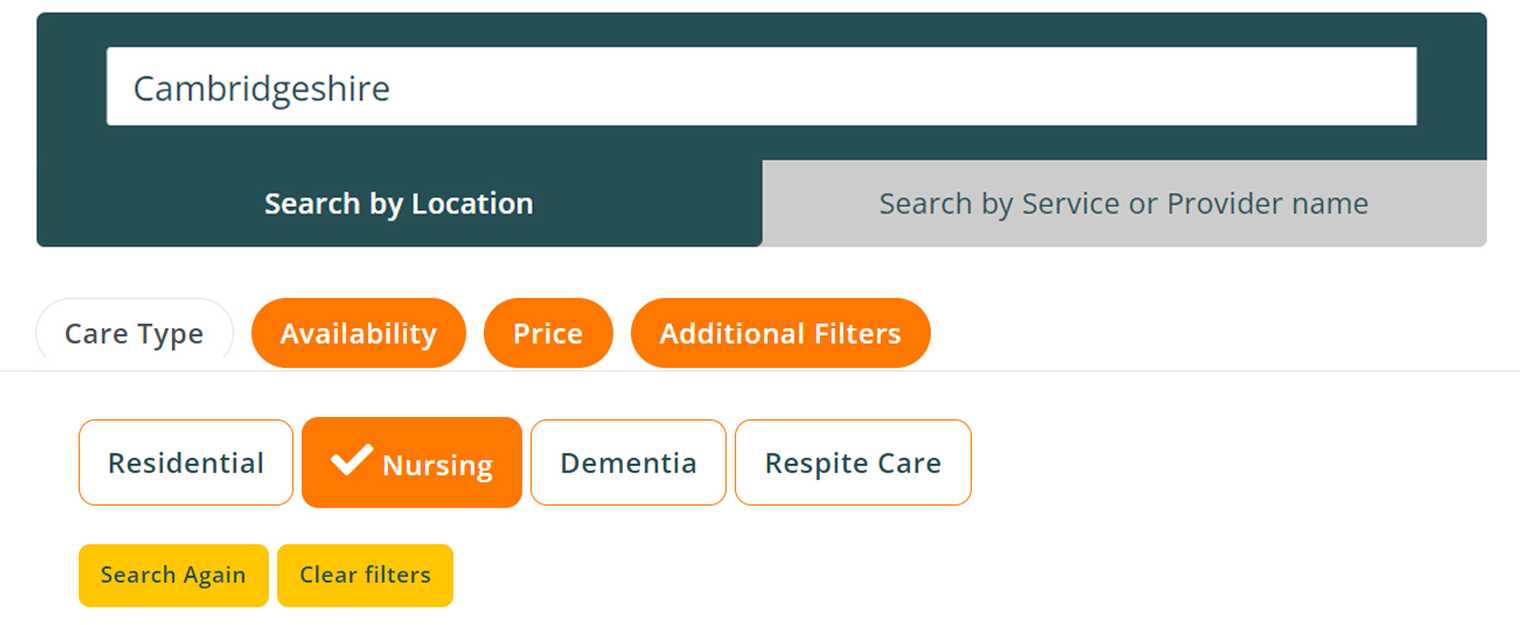Posted by Hannah Rowe
Reasons for Admission to a Nursing Home in the UK
Over 360,000 people live in a care home in the UK, according to the most recent statistics from the Office for National Statistics. The majority (over 70%) live in a residential care home.
As we have discussed before, residential care and nursing care are not the same. People living in residential homes do so because they need support with daily living tasks such as personal care and meal preparation, and may also choose to live there because they feel lonely or vulnerable living at home. Nursing home residents have higher levels of physical dependency, and require the presence of nursing staff 24 hours a day.
Although nursing home residents share the need for more intensive care and support, their medical reasons for and routes to admission can be very different. Here are some of the ways in which someone can be admitted to a nursing home.

Moving to a nursing home directly from hospital
Sometimes, a patient has had a spell in hospital prior to their admission. If the hospital feels that they have stabilised the patient’s condition and/or can do no more to help them medically; and/or the patient’s condition deteriorates rapidly; then they may advise that the patient is discharged to a nursing home.
In our blog ‘Demystifying Care Terminology – Discharge to Assess’ we described how this situation could occur. It would be deemed as ‘Pathway 4’, whereby the hospital discharge team assess that the patient will require ongoing 24-hour care in a care or nursing home.
The patient could have a number of conditions which may require them to be admitted to a nursing home, including end-stage Cancer or Chronic Obstructive Pulmonary Disease (COPD). It may be possible, if the patient has these or another condition, to apply for Continuing Healthcare Funding (CHC Funding) to meet the costs of their stay.
Moving to a nursing home after being in a residential care home
It has been well documented that the population of the UK is ageing, and as people age the possibility of experiencing health and/or mobility issues increases. The average length of stay in a care home in the UK is 30 months according to Independent Age, and although the majority of people leaving a care home do so because they sadly pass away, others leave to go to a facility which is more able to meet their increased health and care needs.
This is particularly the case if the person has a degenerative condition, for example if they are living with dementia and lose further cognitive ability; or have Parkinson’s Disease and their mobility deteriorates.
The care plan which was created when the person was first admitted to the care home will be reviewed every few months, taking into account the observations of the staff who care for them. If the home’s management feel that the resident’s care needs have changed so much that they can no longer provide safe and appropriate care, they may recommend that the person and their family consider a move to a nursing home.
Moving to a nursing home after being on the Discharge to Assess pathway
As we outlined in our blog ‘Demystifying Care Terminology – Discharge to Assess’, patients being discharged from hospital but who still require support can be put on one of four ‘pathways’ on a Discharge to Assess package. This package lasts for up to six weeks, during which time the staff providing care and support will continuously assess the progress that the patient is making.
In some instances, a patient may intend to return to their own home to recuperate and then continue living independently; however, during the assessment period it may become obvious that this will not be possible. In this scenario, the patient may end up being admitted to a care home or nursing home long-term.
Moving to a nursing home after receiving care and support at home
Most people prefer to (and manage to) remain living independently at home with a package of care and support, either funded privately or by the local authority. However, in a similar way to people moving from a care home to a nursing home, if the person’s needs increase significantly then this may no longer be possible and a move into residential or nursing care (depending on their needs) may be recommended.
Moving to a nursing home if a partner dies or goes into care themselves
Often a person with care and support needs receives this from an unpaid carer, such as a family member or friend. However, sometimes this is a short-term solution or changes suddenly because the carer themselves becomes unwell, disabled, passes away, or simply can no longer provide the required support. In this scenario, the person receiving care cannot remain at home independently, and therefore will move to a residential or nursing home.
The scenarios we have outlined above are general, and there may be other reasons why a person enters a nursing home. Although these facilities make up less than 30% of care properties in the UK, they are a vital ‘cog’ in the health and social care wheel. They allow people requiring intense care and support to remain out of a hospital setting, giving all the benefits of a care home such as socialisation, activities and private space, whilst offering the high-level specialist care of nursing staff.
How do I find a nursing home near me?
If you need to find a nursing home then possibly the easiest way is to use Autumna’s shortlisting service. Just answer a few simple questions and the team at Autumna will generate a shortlist of care providers who will be able to help you.
If you’d rather just browse for nursing homes yourself then go to the Autumna home page, choose the area you want to search, for example Cambridgeshire, then select ‘Nursing’ in the ‘Care Type’ filter.
A list of the nearest nursing homes to the centre of Cambridgeshire will appear. You can then click on each to get more information.

And if you’re not totally confident searching online, then you can always call our friendly advice line team on 01892 33 53 30 who will be more than happy to help you.
The line is open 7 days a week from 8.30am – 5.30pm Monday through to Friday, then from 10am – 5pm on Saturdays and 10am – 4pm on Sundays.
Receive a Free Care Home Shortlist!
Let our expert team of advisers get your search off to a great start.
Tell us a little about your needs and we'll send you a bespoke shortlist of care homes! Click the button below to begin, it takes just a few minutes.
Other articles to read
Autumna blog

Older Persons Care Advice
What is Discharge to Assess?
April 16th, 2025
Discover how Discharge to Assess (D2A) supports faster recovery, reduces hospital stays, and how Autumna helps simplify finding the right care.

Older Persons Care Advice
What are the benefits of person-centred care?
April 9th, 2025
Discover the benefits of person-centred care—from improved wellbeing to better outcomes—for individuals, families, and care providers alike.

Older Persons Care Advice
How to choose the best coastal areas to retire
April 8th, 2025
Discover the best coastal areas to retire in the UK — from hidden seaside gems to practical tips for planning your move and care with confidence.






